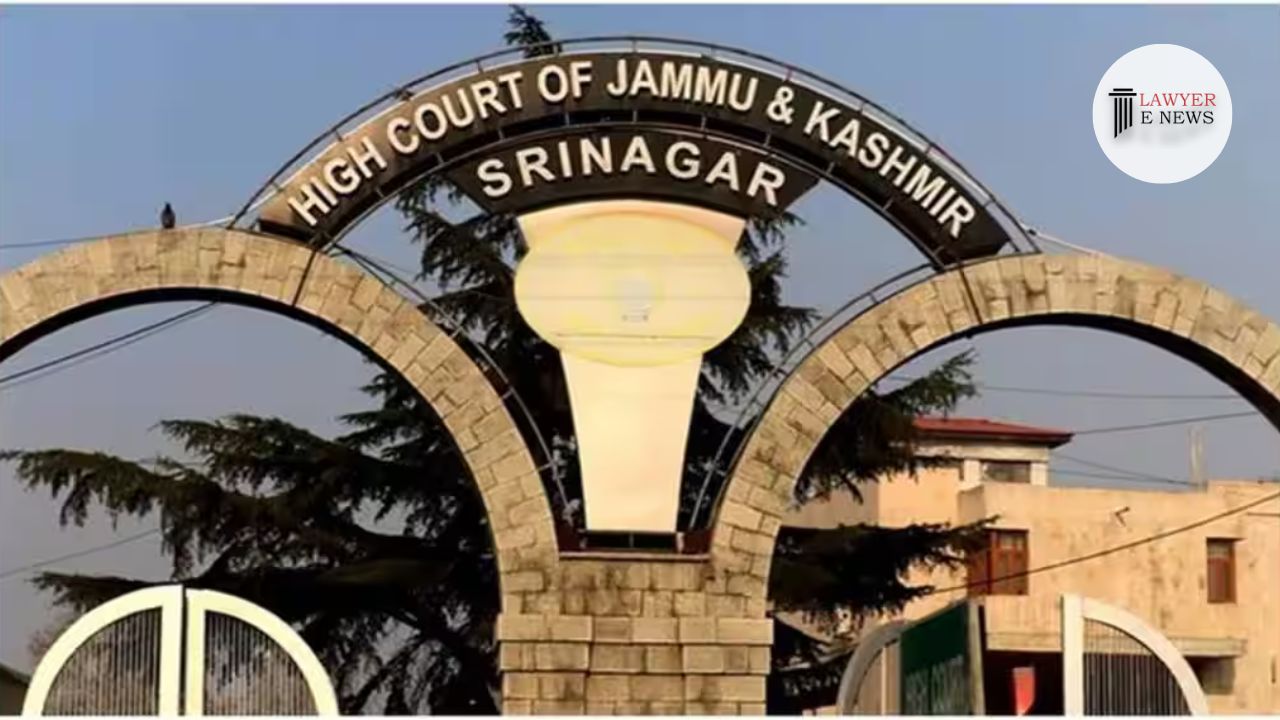-
by Admin
15 February 2026 5:35 AM



In a significant ruling, the High Court of Jammu & Kashmir and Ladakh has set aside the reinstatement of Masarat Jan, a former police constable, who had earlier resigned from her position. The court found that Jan had concealed material facts in her petition for reinstatement, resulting in an abuse of judicial process. The judgment, delivered by a bench comprising Justices M. A. Chowdhary and Tashi Rabstan, emphasizes the importance of full and honest disclosure by litigants seeking equitable relief from writ courts.
Masarat Jan was appointed as a Constable in the Jammu & Kashmir Police in 1999. However, she unauthorizedly absented herself from duty and subsequently resigned in 2002, citing domestic compulsions. Jan later sought reinstatement, claiming that her resignation was tendered under duress due to threat perceptions. Her initial writ petition in 2009 resulted in a directive for the police authorities to consider her representation compassionately. However, her representation was rejected in 2011, and subsequent writ petitions and appeals were also dismissed. Despite this, Jan filed a review petition in 2015, concealing the previous rejections.
The court emphasized that Jan had failed to disclose the rejections of her representations and previous petitions, thus misleading the court. “Suppression or concealment of material facts is not an advocacy. It is a jugglery, manipulation, maneuvering or misrepresentation, which has no place in equitable and prerogative jurisdiction,” the bench noted, quoting from the Supreme Court’s ruling in K.D. Sharma v. Steel Authority of India Limited.
Highlighting the duty of litigants to disclose all material facts, the court remarked, “Litigant before the Writ Court must come with clean hands, clean heart, clean mind and clean objective. He/she should disclose all facts without suppressing anything.” The court underscored that failure to do so amounts to an abuse of the judicial process.
The judgment discussed the principles of equitable jurisdiction, stressing that those seeking relief must approach the court with honesty. “If a litigant does not disclose all the material facts fairly and truly or states them in a distorted manner and misleads the Court, the Court has inherent power to refuse to proceed further with the examination of the case on merits,” the court stated.
The court’s legal reasoning was rooted in the principle that equitable relief demands complete transparency from the petitioner. The judgment referenced several Supreme Court cases, including ABCD v. Union of India and Chandra Shashi v. Anil Kumar Verma, which underscored the consequences of misleading the court. The court found that Jan’s actions constituted a clear abuse of the judicial process.
Justice Chowdhary remarked, “Suppression or concealment of material facts is not an advocacy. It is a jugglery, manipulation, maneuvering or misrepresentation, which has no place in equitable and prerogative jurisdiction.”
The High Court’s decision to set aside the reinstatement order of Masarat Jan underscores the judiciary’s commitment to maintaining the integrity of the judicial process. By emphasizing the importance of full and honest disclosure, the judgment reinforces the legal framework governing equitable relief. The court’s directive to the state to consider Jan’s engagement against a suitable post, considering her background, provides a balanced approach, acknowledging her past service while addressing the legal missteps in her petitions.
Date of Decision:7th June 2024
State of J&K v. Masarat Jan
